Apples vs. Oranges – DISC, MBTI, Inner Genius GQ, Insight Discovery – which is right for you? | Catherine Mattiske
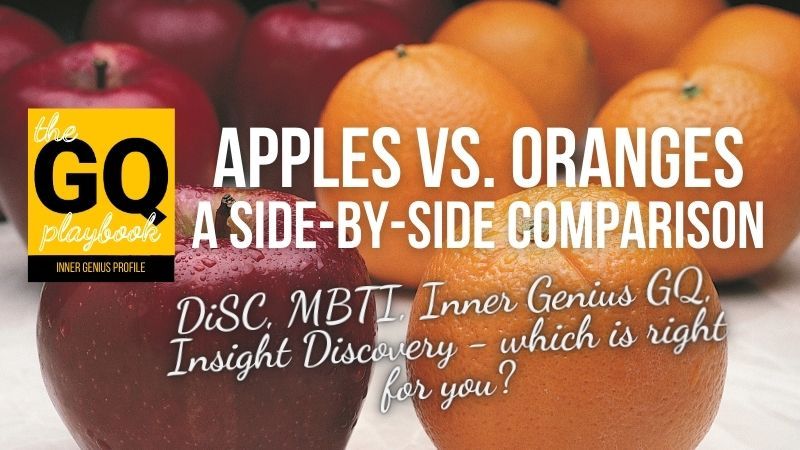
Are you curious to understand yourself and
achieve success in the professional world? Deciphering who we are is an
exciting journey - especially when it comes to understanding our unique
strengths, communication styles, leadership capabilities, and compatibility
with colleagues and teams. We invited you on this voyage of discovery so that
you can gain clarity into which personality assessment tool will help you start
making waves towards your goal: Apples vs Oranges – How DiSC, MBTI, Inner
Genius GQ, Insights Discovery & more comparisons fit your pursuit for
professional success.
Behavioral and personality assessments can offer us valuable insight into ourselves, from our preferred way of learning to our communication style. There are various types of assessments available, but not all provide the same level of detail and accuracy. Check out this list of different short assessments you can take to learn more about who you are, what you like, and what you need to succeed in life.
In this article, we do a side-by-side comparison of:
-
Inner Genius – The Genius Quotient
-
The DISC® Assessment
-
Extended DISC
-
Insights Discovery
-
Myers Briggs Type Indicator®
-
16 Personalities
-
Enneagram Personality Test
-
The Big 5 Personality Traits
Section 1 - The Apple!
Inner Genius – The Genius Quotient
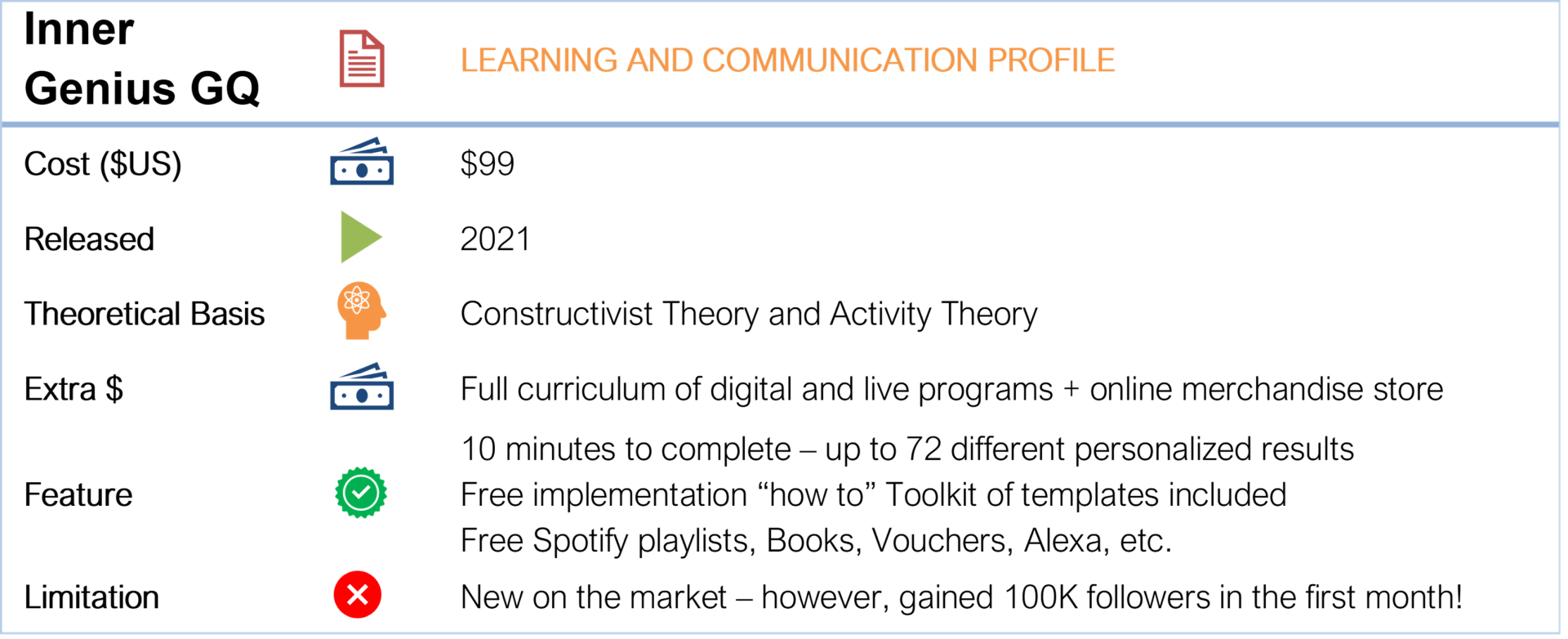
This profile is different from the traditional personality test. This is a new type of assessment or personality test. The Genius Quotient, by Catherine Mattiske in her book, Unlock Inner Genius, takes a much more modern approach to provide individuals with detailed personalized results. Its purpose is to define learning and communication preferences between different people to help them become better communicators.
Inner Genius Profile was created using the lens of Constructivist Theory and applied the psychological multidisciplinary Activity Theory as guiding principles. ID9 Intelligent Design and the 9Step Question Forming Theory were used to design the Profile question, drawing from the work of 42 learning Theorists, most notably Bloom, Dewey, Bruner, Gagne, Gardner, Ebbinghaus, Marton, and Saljo.
Genius Quotient is not a personality test like DISC or MBTI so the accuracy is much higher. As with all Profiles, they must be completed with honesty, accuracy, and how you are now, not how you would like to be in the future.
Upon completing the profile, individuals will gain more significant insights into their learning preferences and have an assigned Archetype with a learning Power-Up that they can use to their advantage in their daily lives. It takes roughly 10 minutes to complete the profile, and those who've completed the questionnaire will receive actionable tips on how to implement the results into their daily lives to achieve goals and succeed.
The cost of accessing the test is $99, and the results are free. Once completed, an entire ‘vault’ of materials and tools, including Mattiske’s entire book ‘Unlock Inner Genius’, as well as a customized Spotify playlist for each Archetype, Alexa skills, and more are included. In addition, a convenient accreditation program is available with follow-up courses that benefit people from all walks of life who want to become better communicators. Because it's a relatively new product, it's far more modern than some outdated, more traditional assessments available to the public, making it an excellent choice.
Section 2 - The oranges!
The DISC® Assessment
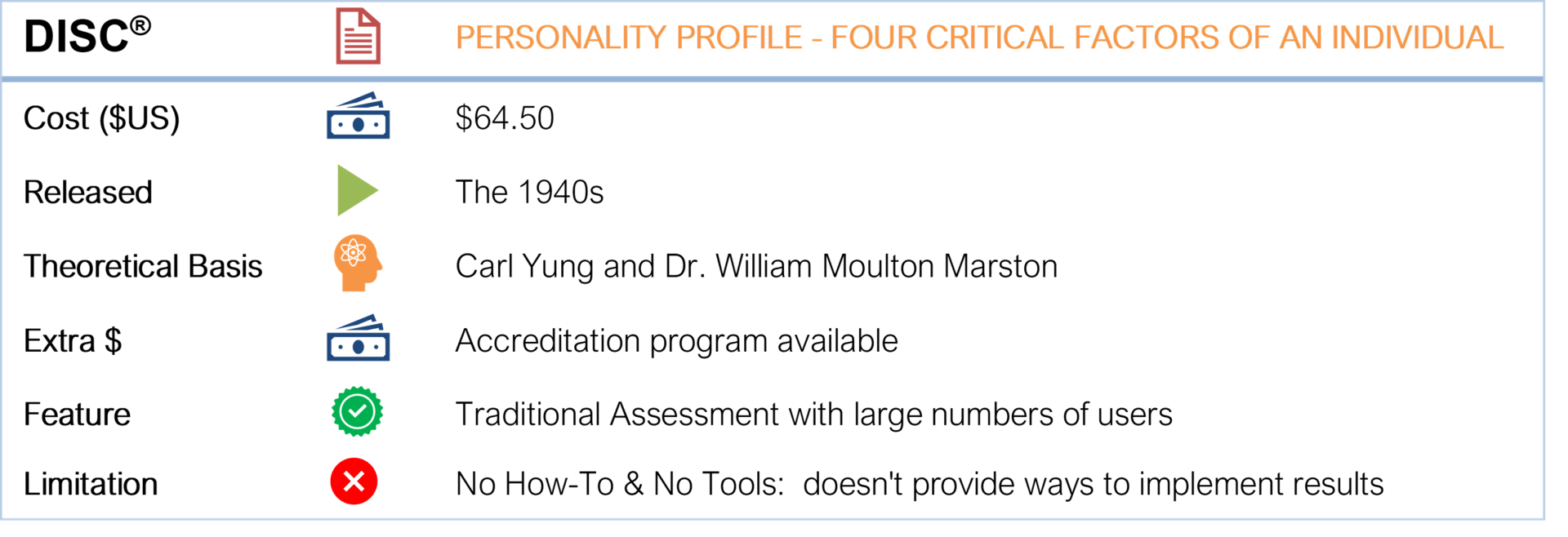
While the assessment is $64.50 and an accreditation program is available, this assessment doesn't provide its users with ways to implement their results into their everyday lives. With no follow-up courses or digital modules available, those who take this assessment may not know what to do with this new information learned about themselves.
Extended DISC
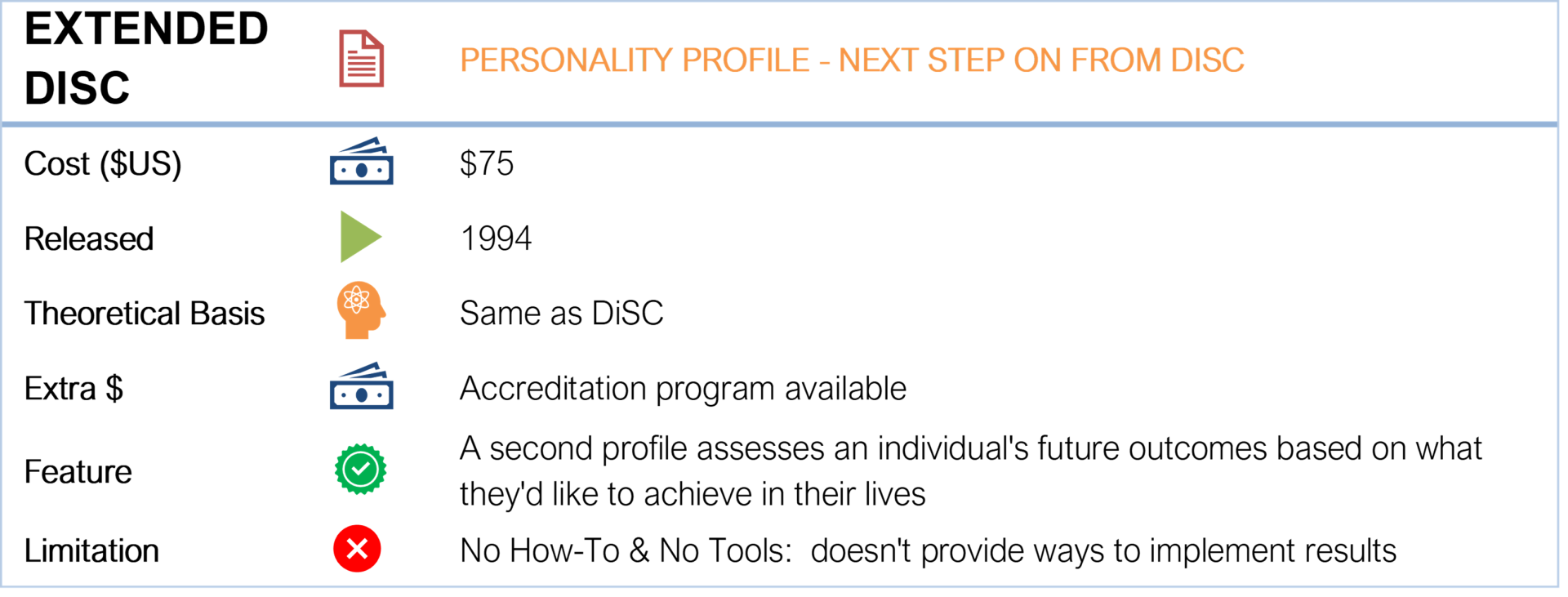
The Extended DISC, founded in 1994 by Jukka Sappinen, offers the same outcome as the traditional DISC assessment. In addition, it provides details on behavioral preferences, and the specific tasks individuals would need to complete to reach favorable outcomes in the long run. However, while it offers an outline of behavioral changes one would need to make to reach goals, it still lacks the substance to help these individuals implement such changes into their daily routines.
Available for $75, those who take this test will only receive their outline via consult. It offers tools for participants to use to their advantage, but it is essentially a rehash of the traditional DISC assessment. The only difference is that it provides a second profile consisting of different questions to assess an individual's future outcomes based on what they'd like to achieve in their lives.
Insights Discovery
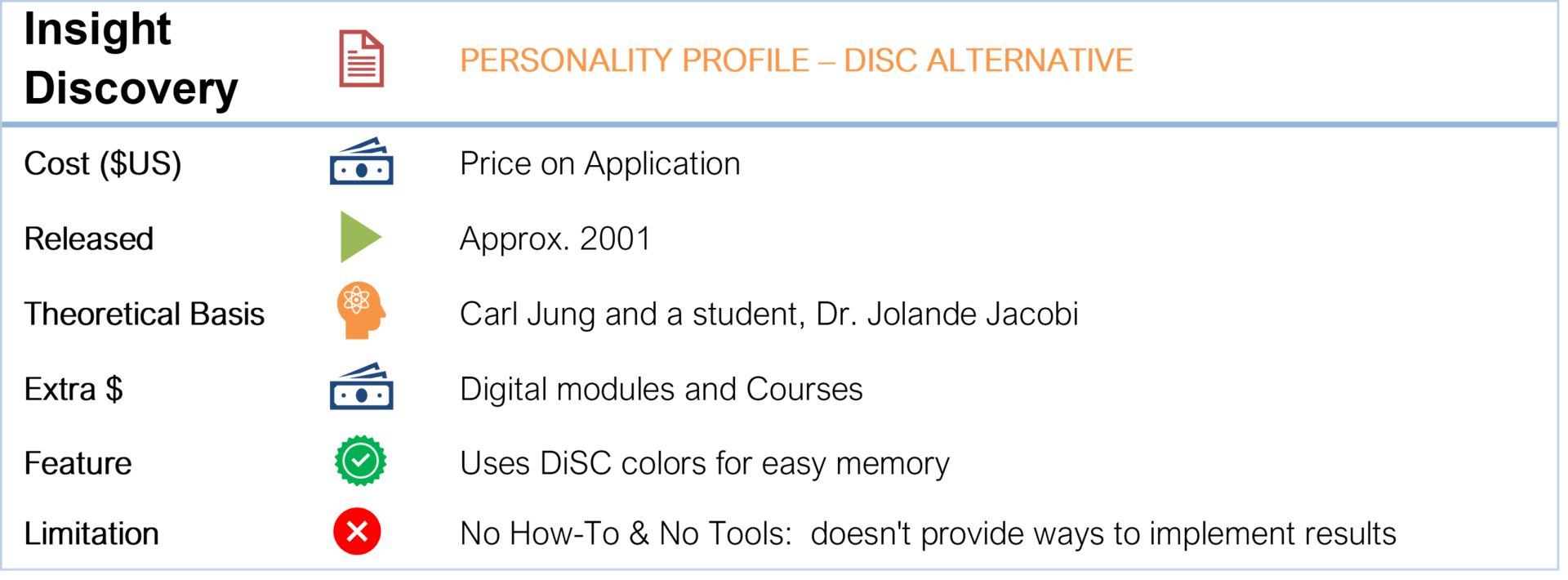
The testing is available by quotation only, so there is no set price listed for Insights Discovery. While this program does offer digital modules and follow-up courses for gathering more information, it doesn't provide details on the implementation of results, thus making it harder for participants to understand how to make changes to their daily habits to achieve good results.
Myers Briggs Type Indicator®
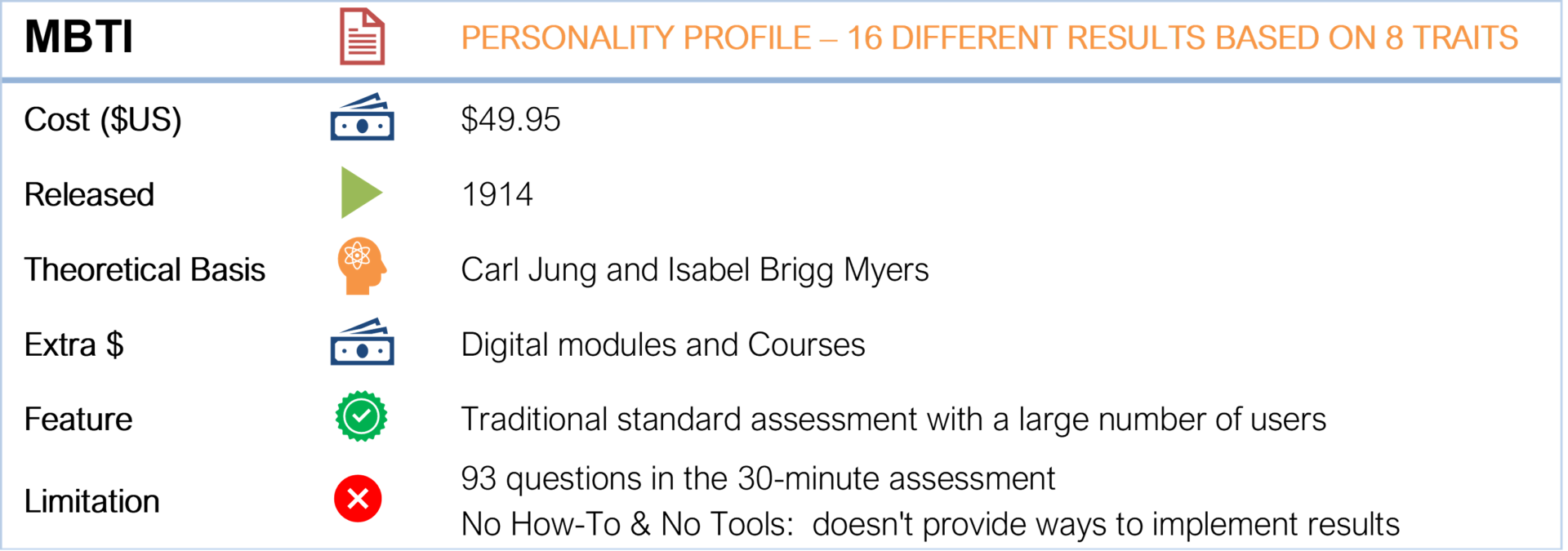
The pricing for this assessment starts at roughly $49.95, with no how-to guide or tools available for implementing these results. In addition, your hidden personality traits may be altered based on your mood and circumstances, meaning they're not as reliable because different circumstances can change. Additional learning modules and follow-up courses are available for those who take this test and want to learn more about their personality.
16 Personalities
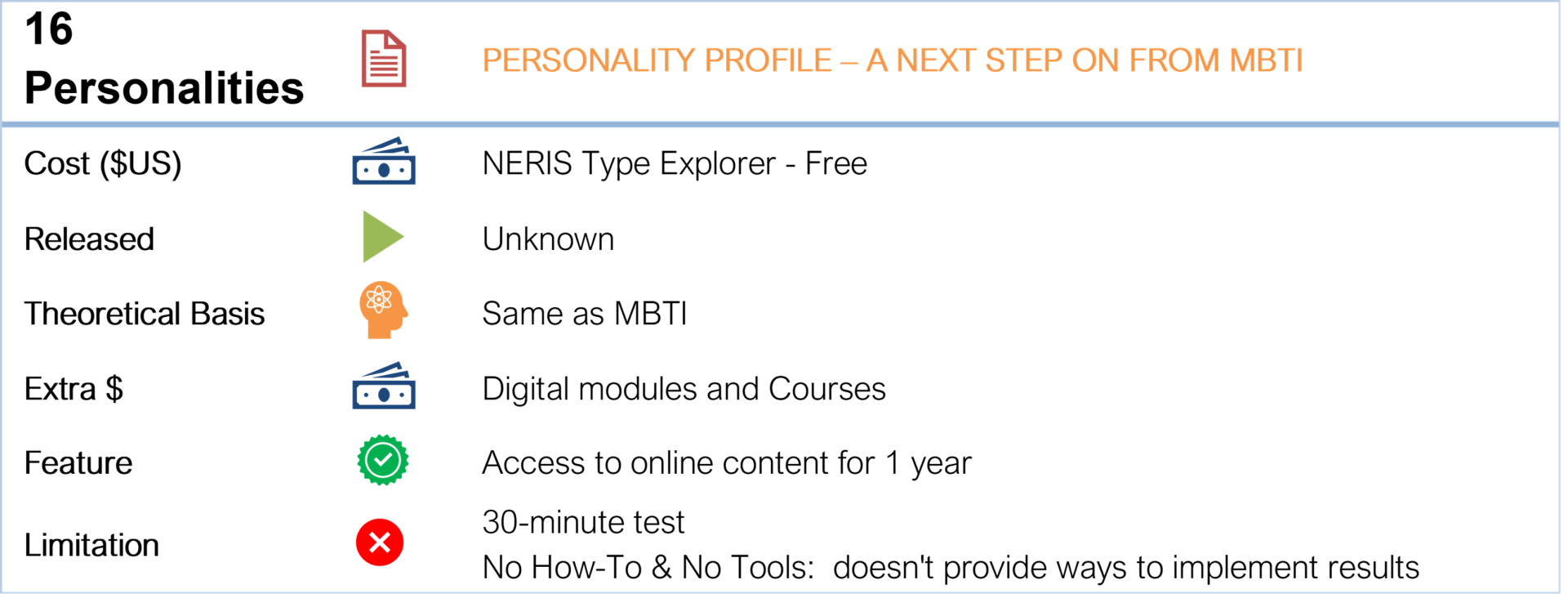
The exact start of the 16 Personalities test is unknown. However, it uses a trait-based personality test to discover more about a person's personality based on their mind, energy, nature, tactics, and identity. It offers the same outcomes as the MBTI and is a 30-minute test with no additional information or outlines to implement the results. The NERIS Type Explorer version is free of charge and consists of 60 questions. It uses new terminology for the four preferences and adds a fifth letter to the type code, signifying an individual's response to stress. Those who take this test will have access to one year of online content. While some question the accuracy of this profile, the company states it's 90% accurate.
Enneagram Personality Test
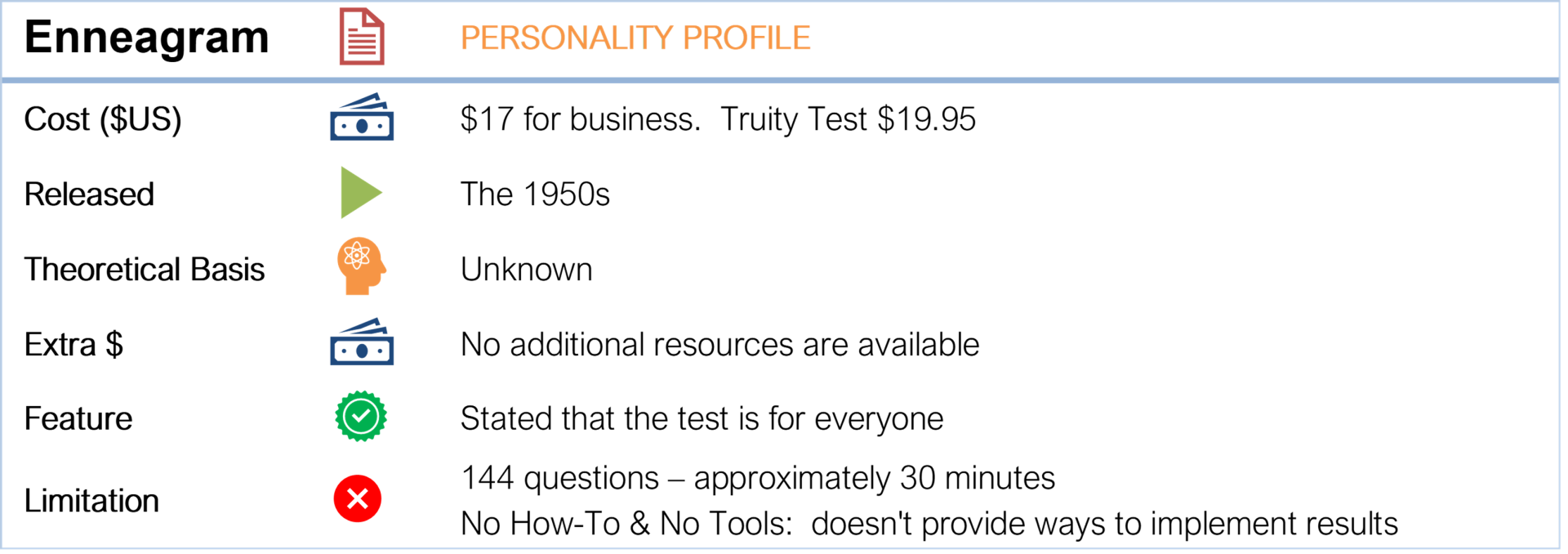
The Big 5 Personality Traits
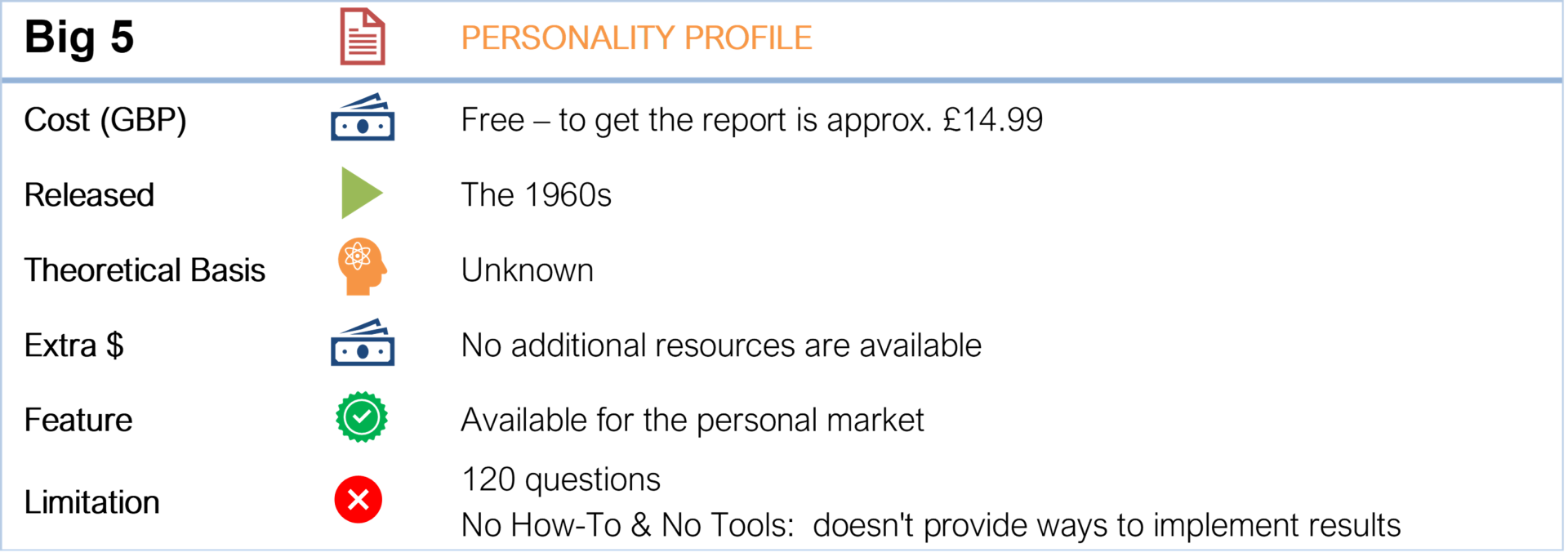
Conclusion
The Inner Genius GQ provides a personalized, in-depth report that not only reveals your unique talents and strengths but also offers practical advice on how to use them. This allows you to tailor your approach depending on the person or situation at hand, ensuring success in any interaction.
We hope this article has given you an overview of what is available in terms of personality assessments and how the Inner Genius GQ offers something more. With its insights and practical advice, it provides an invaluable resource for anyone looking to improve their success rate in any situation. Try it out today and see what you can learn about yourself!


About Catherine mattiske

Level 20, Darling Park
Tower 2, 201 Sussex Street
Sydney NSW 2000
Australia
P +61 (02) 9555 1953
